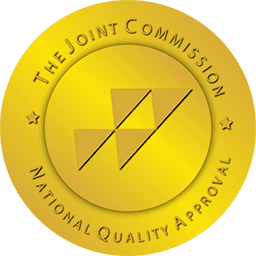Major depressive disorders are common. Over 21 million adults in the US have had at least one episode of major depression. That’s 8.4% of the entire adult population in the United States. Depression is the number one cause of disability in the US for people ages 15-44.
Fortunately, depression responds well to treatment, including medication, psychotherapy, or a combination of both. Although there are numerous therapeutic approaches to treating depression, Cognitive Behavioral Therapy (CBT) is particularly well-suited for addressing various types of depression.
What is Cognitive Behavioral Therapy?
Cognitive Behavioral Therapy (CBT) is a type of therapy used to treat many mental health problems. CBT examines how a client’s habitual thoughts, perceptions, and beliefs affect their moods and behaviors. It also examines their ability to adapt to life’s challenges.
CBT is rooted in the idea that people engage in established ways of thinking that reduce their ability to cope with stressors effectively. Often, the problem with these intuitive ways of thinking isn’t just that they are negative. People suffer because their automatic thoughts are often based on incorrect information and inaccurate judgments that have no basis in reality. These erroneous thinking habits impair a person’s ability to evaluate and cope with difficult situations accurately.
How Does CBT Work?
In CBT, a therapist helps a person understand how their habitual negative ways of thinking affect their emotions, situations, health, and behaviors. Therapists who use CBT also teach clients to identify and eliminate self-defeating thought processes called cognitive distortions.
The following are just a few of the many types of cognitive distortions:
- Polarized thinking. Polarized thinking sees everything in terms of all-or-nothing.
- Catastrophizing. When a person exaggerates the negative magnitude of an event, they’re catastrophizing.
- Should/Must statements. “Should and must” statements attempt to create rules where there are none, such as “The world should be fair” or “I must always get As.”
- Personalization. Someone who takes everything personally feels continually insulted and diminished.
- Mind-reading. In mind-reading, people believe they know what another person is thinking and act on their assumptions.
- Overgeneralization. Applying the outcome of one situation far too broadly.
- Emotional reasoning. People often mistake powerful emotions for facts about themselves and the world. For example, a person feeling lonely may believe themselves to be unlovable.
- Control fallacies. In a control fallacy, a person assumes they have too much or too little ability to affect the outcome of their situation. But CBT does much more than help learn to identify harmful habitual thoughts. CBT is also effective for learning healthier, more adaptive, and useful behaviors.
What Conditions Can CBT Treat?
CBT is not just for serious psychological disorders. It works well for most behaviors a person would like to change or eliminate. However, CBT is famed for its effectiveness in these mental health conditions:
- depression
- bipolar disorder
- anxiety
- phobias
- panic disorder
- eating disorders
- Postpartum depression
- obsessive-compulsive disorder (OCD)
- post-traumatic stress disorder (PTSD)
- substance abuse disorder
CBT is also an effective treatment for dual-diagnosis patients with co-occurring depression, substance abuse, or alcohol use disorder.
How Well Does CBT Work For Depression?
CBT is one of the most effective treatments for depression. As well, when combined with antidepressant medication, CBT is a great treatment for moderate to severe depression. Meta-studies have shown that patients who received antidepressants without therapy have a recurrence rate of 60%. In people treated with CBT, only 29.5% of people experience a recurrence of depression.
What Can Someone Expect From CBT?
CBT is a structured, goal-directed form of therapy focused on specific problems the client is currently having. The client and therapist work together to explore how negative thinking patterns can make emotions like depression worse. Typically, CBT lasts for less than 6 months, with visits to an outpatient therapist occurring once a week.
However, CBT can be used at all levels of care, including inpatient, partial hospitalization, residential rehab, and intensive outpatient care.
In CBT, a client learns to:
- Recognize, manage and eliminate cognitive distortions
- Identify how negative thinking worsens depression
- Recognize emotional reactions and differentiate them from factual information
- Practice accurate self-evaluation
- Practice positive, accurate, and balanced self-talk
Exploring Depression Treatment Options
At Absolute Awakenings, our mental health treatment programs help people with depression develop sustainable plans for managing their disorders. We give our patients the skills and tools they need to enjoy consistent mood balance and good mental health. This creates a stable foundation for recovery.
Treating depression at Absolute Awakenings always entails a multi-pronged approach. We leverage various options in psychotherapy along with the medical management of depression disorders. We also offer nutritional counseling, stress management training, and other natural and evidence-based tools when necessary.
If you’re tired of self-treating your depression in unhealthy and harmful ways, you’re not alone. At Absolute Awakenings, we help people battle both depression and substance use disorder at once. Our dual diagnosis program will give you the skills to enjoy a sober, successful, and ultimately happy life. So call us today to start healing.
References
- Major Depression. National Institute of Mental Health (NIMH). Published January 2022. Accessed January 4, 2023. https://www.nimh.nih.gov/health/statistics/major-depression
- What is Depression? | Anxiety and Depression. Published December 9, 2022. Accessed January 4, 2023. https://adaa.org/understanding-anxiety/depression#Types%20of%20Depression
- Driessen E, Hollon SD. Cognitive Behavioral Therapy for Mood Disorders: Efficacy, Moderators and Mediators. Psychiatr Clin North Am. 2010;33(3):537-555. doi:10.1016/j.psc.2010.04.005
- Rupke SJ, Blecke D, Renfrow M. Cognitive Therapy for Depression. afp. 2006;73(1):83-86.













